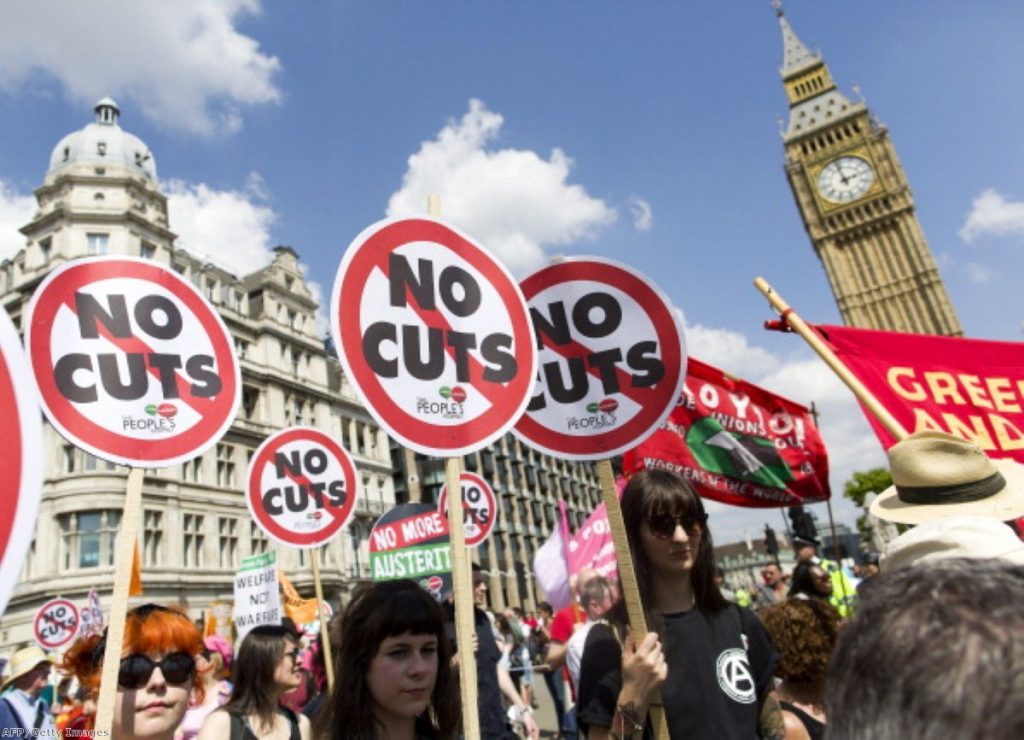Comment: The austerity myth – why times are only hard for some
By Mark Serwotka
"In these times of austerity, when there is less money around, we have to face up to reality, we can no longer afford to do this, we all have to tighten our belts…"
Politicians of all parties continue to trot out this rubbish daily to justify huge cuts in public spending, including the jobs and pay of millions of public servants from jobcentre staff to tax credit advisers and from nurses to teachers and firefighters.
But is there really less money around? Of course not. Our economy is still one of the largest in the world and some people are still doing very nicely, thank you very much.


If there was less money around, the average pay of FTSE 100 chief executives wouldn't have increased to £4.5 million last year. If there was less money around, the five richest families in the UK wouldn't be wealthier than the bottom fifth of the rest of the population.
If there was less money around, we wouldn't be able to renew Trident or cut taxes for millionaires and corporations.
The truth is we are not broke, it is just that the money is flowing in the wrong direction, and often into the offshore accounts of wealthy tax avoiders. Our economy neatly resembles the line in the cult film Withnail and I: "Free to those that can afford it; very expensive to those that can't."
Take the government's 'Households below average income' report, published earlier this month. It revealed almost one quarter of working age adults are living in poverty – the highest level since 2000. There is certainly not less money around if you're a rip-off energy company preying on these low-paid households. Since 2010, the average electricity bill has risen by 22% and gas bills have spiralled by 57%.
After four years of this government's pay freeze and 1% cap, public servants, like most people, simply cannot make ends meet. As one said to me recently, there is just too much month at the end of the money.
In the civil service, official figures show an average 10% gap between pay rises and increases in the cost of living between 2010 and 2013. A calculator on our website, that takes into account pay, the increase in monthly pension contributions and inflation, reveals some civil servants have suffered a 20% cut in their income under this government.
The most authoritative comparison of civil service and private sector pay, by the independent analysts Croner, shows civil servants are now paid 6.4% less than direct comparators.
Unequal pay is also rife, as we are forced to negotiate with more than 200 separate civil service employers, instead of being able to hold central pay talks. This means, for example, that staff in the Passport Office can be paid up to £3,000 less than their colleagues doing similar work elsewhere in the Home Office. Women – the majority of workers in the civil service – earn 10% less than their male counterparts, 14% less for part-time work.
We are not making a special case for the public sector over the private sector. I cite these examples merely to present the facts and to show the government has made a political choice, in the name of austerity, to cut the living standards of its own staff and those for whom it is responsible.
It has done this by mythology. So our national economy is likened to a household budget with a roof that wasn't fixed when the sun was shining. Well, now our economy is apparently in recovery, so why is the rain still pouring in for millions of people?
We have tried to negotiate but across the public sector the doors are being slammed shut. We will be on strike with other unions on Thursday to try to force those doors open.
So please stop trying to tell us there is less money around, it is insulting. Let's have an honest debate about where the money is going and honest negotiations with the government about how to improve the livelihoods of the millions of public servants who keep this country running.
Mark Serwotka is general secretary of the Public and Commercial Services Union
The opinions in politics.co.uk's Comment and Analysis section are those of the author and are no reflection of the views of the website or its owners












